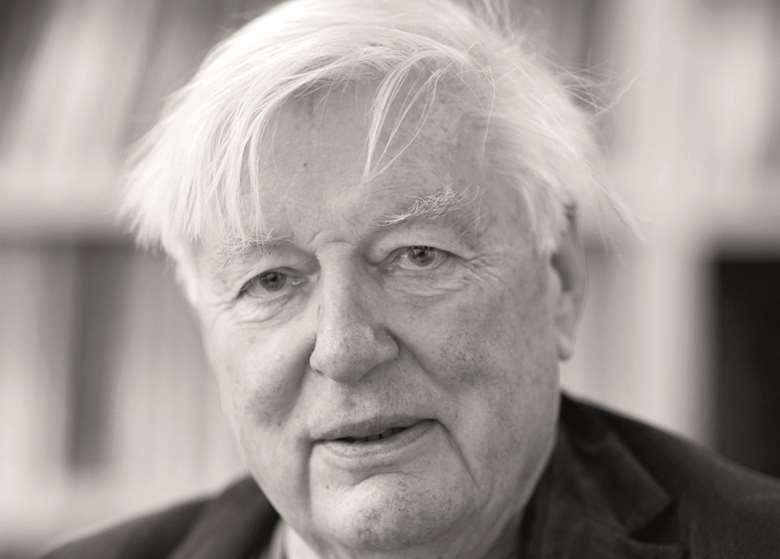Hugh Wood - composer, writer, teacher: obituary
Tuesday, August 31, 2021
Born June 27, 1932; died August 14, 2021

The British composer, writer and teacher Hugh Wood has died at the age of 89. Chamber music was central to his output, particularly his six (of which five are numbered) string quartets.
Born in Parbold, Lancashire, Wood read modern history at Oxford before pursuing academic musical studies in his early twenties; his teachers included William Lloyd Webber, Anthony Milner, Iain Hamilton and Mátyás Seiber. He credited Milner and Seiber for their rigorous technical and methodical approach which in turn informed and characterised his own music. His parallel career as a teacher incorporated posts at Morley College, the Royal Academy of Music, and the Universities of Glasgow, Liverpool and Leeds. His final post, from 1977 until he retired in 1999, was University Lecturer at the Faculty and Fellow and Director of Studies at Churchill College, Cambridge.
Wood’s music first attracted attention in the late 1950s with performances at the Cheltenham Music Festival and at concerts hosted by the Society of the Promotion of New Music, leading to a BBC commission for his First String Quartet (1962). Wider recognition resulted from the premiere at the 1965 Proms of his orchestral work Scenes from Comus, featuring extracts from Milton’s masque for soprano and tenor, whose recording – alongside his fine Symphony (1982) – by the BBC SO under Andrew Davis for NMC was shortlisted for a Gramophone Orchestral Award in 2002. Other significant Proms performances included Variations for Orchestra (performed at the Last Night of the Proms in 1998) and Serenade and Elegy (1999) for string quartet and orchestra, written in memory of the composer’s daughter, plus concertos for cello (1969), violin (1972 and 2004) and piano (1991); the latter was written for Wood’s former student Joanna McGregor, who has spoken of the work’s combination of Mahlerian, ‘secretly jazzy’ and minimalist elements.
A sizeable chunk of Wood’s numbered quartets have been recorded by the Chilingirian and Dartington quartets for Conifer and Lyrita respectively, while some of his wind and piano trios have been recorded for Toccata Classics and Divine Art. Last month, Ithaka (2016) – a work which derives its inspiration from the eponymous meditation by the Greek poet CP Cavafy on Ulysses’s 10-year homeward journey after the Trojan War – was recorded by the Eblana String Trio for Willowhayne. As Andrew Achenbach wrote in his review, ‘Not only does Woods’s creation pack a wealth of first-rate invention into a canvas lasting a mere nine minutes and 40 seconds, it also exhibits an expressive charge, economy of thought, painstaking craft and entrancing resourcefulness that will come as no surprise to anyone familiar with the string quartets’ (9/21).
Wood’s song output is impressive, reflecting his love of English literature with settings of WH Auden, Robert Graves, Ted Hughes, DH Lawrence, Laurie Lee and Dylan Thomas; these are well represented on ‘Wild Cyclamen’ (again on NMC), commissioned by the RPS the BBC for tenor Andrew Kennedy, which gained Wood a British Composers Award in 2006.
In his Contemporary Composer piece (4/15), Richard Whitehouse lamented the gaps in Wood’s discography: the Chamber concerto, the Song Cycle to Poems of Pablo Neruda and the Fifth Quartet, among other key works. He also commented on Wood’s ability, even in his eighties, ‘to continue to refine his musical idiom that, with its basis firmly in the development variation techniques of Brahms and Schoenberg, as well as the harmonic and textural innovations of Janácek and Messiaen, amply retains its potency at a time when such concern for all-round forma and expressive integration is by no means to be taken for granted.’ RW concluded by urging readers to becoming acquainted with Wood’s varied and authoritative legacy ‘whose continued relevance to the music for the early 21st century cannot be doubted’.







